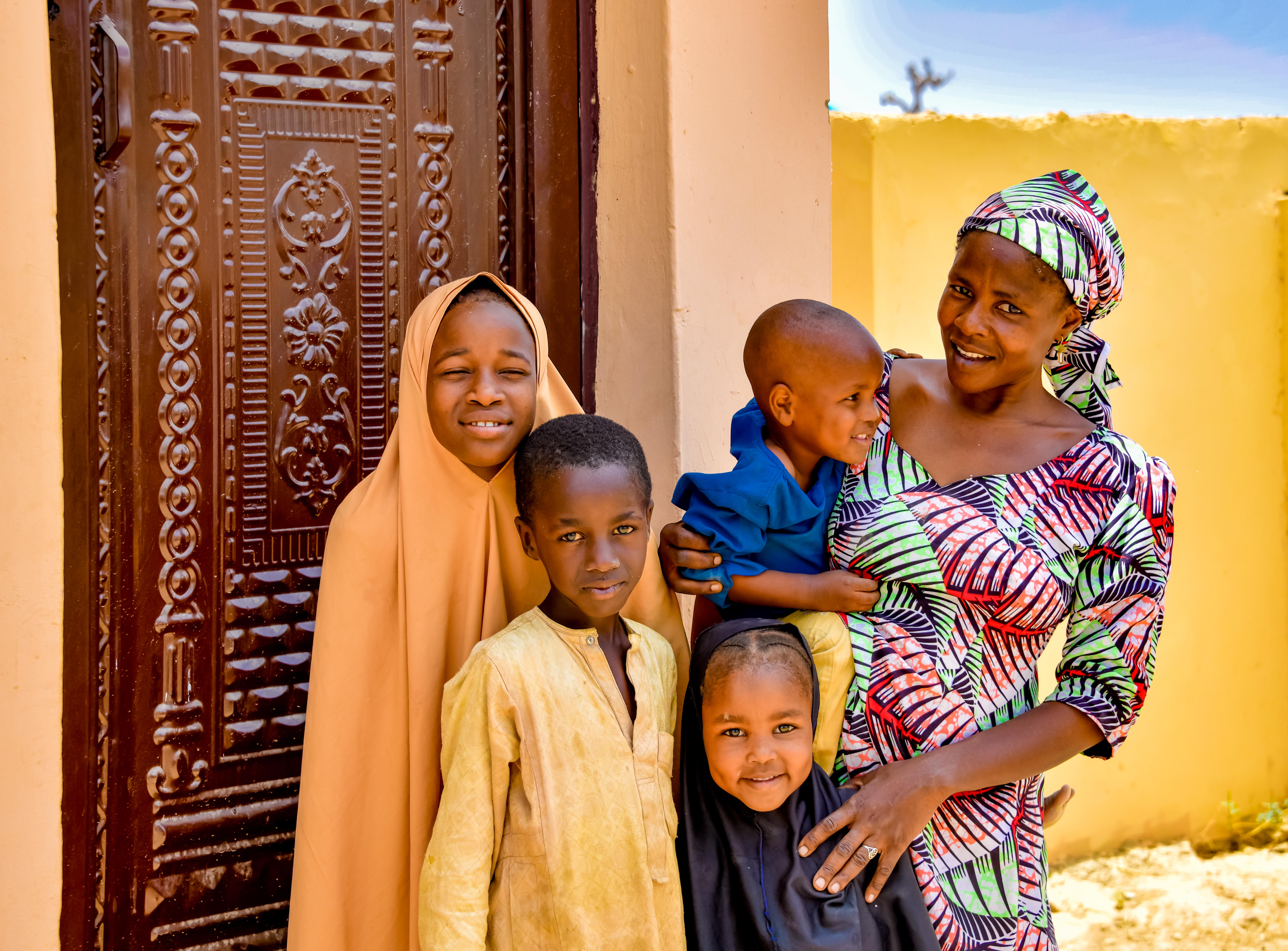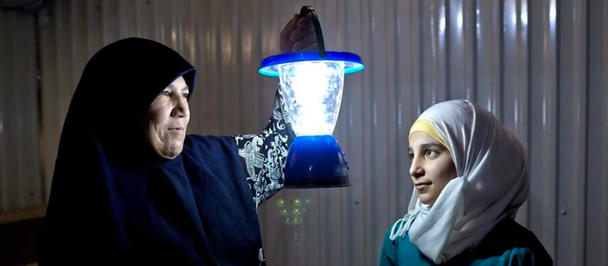Restarting lives, recovering livelihoods: The Lake Chad Basin after a decade of violence and displacement
February 17, 2023

In northeast Nigeria, families displaced by extremist violence are beginning to return home. A stabilization approach, led by the community members, is helping to rebuild trust between displaced populations and the authorities.
On 12 February 2023, the world marked the first-ever International Day for the Prevention of Violent Extremism in order to raise awareness of the threats linked to violent extremism and enhance international cooperation around this critical issue.
If ever there was a doubt about the devastation caused by violent extremism, globally and locally, the case of the village of Ngarannam in northeast Nigeria offers a sobering reminder. In 2015, the violent extremist group Boko Haram virtually wiped out Ngarannam in a brutal nighttime attack. The 3,000 residents ran for their lives, joining the ranks of more than 2 million Nigerians displaced by the conflict. Many felt they had lost hope.
As one resident, Ali Ngarannam said, “I never really feel safe. We do not even sleep because we are scared at night. I don’t go out for a walk because I am scared that I will be kidnapped.”
Hope has finally returned after seven years of displacement, with a new village rising from the ashes in Ngarannam and families returning home. They are finding a newly built community, which will include more than 500 houses, new schools, health facilities, markets and accommodation for police. This is a tangible outcome of a broader partnership to promote stabilization in northeast Nigeria led by Borno State Government with UNDP through support from the European Union.
Recognizing that locally directed action is more sustainable than imposing outside designs on communities, the village was designed under the guidance of the villagers themselves, who worked closely with local authorities and a leading Lagos-based female architect, Tosin Oshinowo, to develop a design that is innovative, sustainable and improves security.
Breaking the cycle of violent conflict and displacement, including the lure of recruitment by violent extremist groups, depends on a number of factors. A stabilization approach, delivered at speed and scale through risk-informed development interventions, owned and led by the entire community, helps to rebuild trust between displaced populations and the authorities, and lays the foundation to end displacement. These include boosting the local economy, delivering basic services, rehabilitating infrastructure, improving security and social cohesion, and integrating displaced people – especially women and children perceived to be associated with violent extremist groups who have surrendered.
And it’s not just in Nigeria that the lives of people displaced by Boko Haram violence are returning to normal. Governments in Cameroon, Chad, Niger, and Nigeria receive financing towards the rapid stabilization of the region through UNDP’s Regional Stabilization Facility (RSF) for Lake Chad, in partnership with the Lake Chad Basin Commission, the European Union, Germany, Japan, the Netherlands, Sweden and the United Kingdom. Through this programme, they have the resources necessary to establish long-term peace and build back trust between their citizens.
“A few months ago, you could not set foot here because of insecurity. Now, activities are restarting from scratch after the horrors of the war,” said Abouzari Mahamat, Former Mayor of Fotokol, Far North, Cameroon
To date, 3,000 community and security representatives have been trained on human rights and protection. Key infrastructure has been restored and equipped, including health and community centers, markets, homes, security posts, schools and drainage systems.
In Northern Cameroon, Adjida Fauzia is now living as a refugee in a small village after she fled her home in Nigeria. Despite it being one of the poorest parts of the country, villagers welcomed those displaced by the fighting, giving them land to farm side by side with themselves.
“We cannot thank them enough for the sacrifices they’ve made,” Fauzia said.
The forced displacement of a large number of people by Boko Haram in Northern Cameroon could have created tension with the host community over scarce resources. UNDP has been working with other UN agencies, partners and communities in the region with a strong focus on prevention of violent extremism through promoting social cohesion.
Despite progress, the crisis in the Lake Chad Basin region persists, with increased violence and humanitarian needs. The recent High-level Conference on the Lake Chad Region in Niamey, Niger, looked at addressing these needs, building resilience and enabling a quicker return to peace and stability. It brought together governments from the affected countries, international donors, multilateral and international organizations, and civil society actors, who announced over $500 million in pledges to address humanitarian needs and tackle the root causes of the Lake Chad Basin crisis.
Along with critical humanitarian assistance, we believe that a development approach to internal displacement must become the leading strategy for countries and development partners in the Lake Chad Basin and beyond.
A recent report from UNDP, Turning the tide on internal displacement, a development approach to solutions, documents how overcoming internal displacement critically depends on governments implementing key development solutions.
Indeed, many point to decades of grievances, development deficits, and ineffective prevention and peacebuilding strategies as factors that enabled groups like Boko Haram and others to fill the political and socio-economic vacuum. Restoring trust, legitimacy and inclusion must be at the core of our efforts to address these problems as both a preventive and remedial strategy.
Looking deeper at causes and dynamics of violent extremism, this month UNDP launched two reports that examine both the trajectory that individuals take to join violent extremist groups as well as the methods that such groups apply to gain and maintain control in communities. Findings from these studies confirm that development approaches are needed to break the cycle of influence of violent extremist groups. And our comprehensive stabilization efforts in the Lake Chad Bain, such as the rebirth of Ngarannam village, are more than proof of concept.
"We're going back to Ngarannam now,” says resident Bintu Guptu. “We will be able to grow food for ourselves and our children. I'm happy that I'm returning home and getting a house. I never thought I would find someone who would build a house for me so that I can return home."
As high as 75 percent of people who have returned to the village say security has improved and nine out of ten of them were happy with the government’s efforts, according to an independent survey.
Not everyone who is displaced will be able to return to their original places of residence like the people of Ngarannam. But through the Regional Stabilization Facility, and with thanks to the leadership of the Lake Chad Basin Commission (LCBC) members Cameroon, Niger, Nigeria and Chad, displaced populations can begin to return to normality through investments in development that allow them to live with dignity, in good health and in a safe environment like their fellow citizens.
"Along with critical humanitarian assistance, we believe that a development approach to internal displacement must become the leading strategy for countries and development partners."

 Locations
Locations





